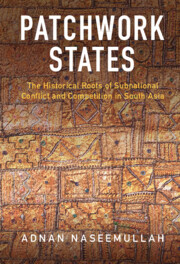
- Cited by 2
-
Cited byCrossref Citations
This Book has been cited by the following publications. This list is generated based on data provided by Crossref.
Dhiman, Atharv and Harbers, Imke 2023. Legal identity at the margins: the impact of violent conflict on birth registration in India. Citizenship Studies, Vol. 27, Issue. 7, p. 779.
Andrä, Christine Bliesemann de Guevara, Berit Querejazu, Amaya and Santos, Victória M S 2023. Textiling World Politics: Towards an extended epistemology, methodology, and ontology. Global Studies Quarterly, Vol. 3, Issue. 4,
- Publisher:
- Cambridge University Press
- Online publication date:
- June 2022
- Print publication year:
- 2022
- Online ISBN:
- 9781009158404


